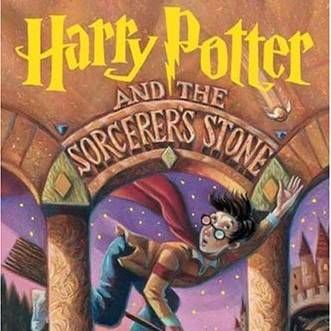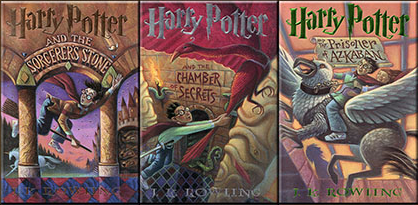
Why I Never Finished Harry Potter (And Probably Never Will)

I have no idea what Hogwarts house I would be in.
Horcrux as a word really means nothing to me.
As a confirmed member of the sci-fi/fantasy bookish internet, though, I can assure you that I didn’t just “miss” Harry Potter. I intentionally avoided the series and not for the reasons you might be thinking.
See, I regret to inform you that this post isn’t a bash against the Harry Potter series. I know there are some of you who were waiting for it — either to enthusiastically agree with me or just as enthusiastically argue. I won’t bash a series so many people love so much, though.
Instead, this is simply about a book that I found on a bookshelf and read one summer, years ago. It happened to be the first Harry Potter book. I settled myself on the top bunk of a bunk bed and read it. I began to read the second one. And, about halfway through, I set it down and never picked it back up again.
There was nothing wrong with the series. I’m sure it’s lovely.
But as readers, sometimes we forget that books themselves are only instruments. That we bring almost as much to our reading as the author does when they write their words. When I read Harry Potter, it was during a time in my life when I simply couldn’t be saved by a book. (And, as a very avid reader, this was the first time that had happened.)
Thinking of Harry Potter now only reminds me of when I was a pre-teen going through the beginnings of my parent’s divorce. It has become wrapped up in that small space of time: a new top bunk bed, a strange home, and a book I found by chance.
Every kid with divorced parents remembers that time of displacement. A time between the before and the after. A time when life was set in a sort of limbo and you were either shuttled off to a new house or your old home was no longer the same. It’s an unmooring that can never quite be forgotten.
For many readers, I know that Harry venturing off into his own new world is this huge thing of wonder. The train! The owls! Rowling did a beautiful thing. For me, though, reading the book was just a constant reminder of my own displacement. Harry’s was an upwards journey–my own was just muddled and confusing and exhausting.
Up until that point, I had believed that books could always take us out of a situation and help save us (or, at least, in the pre-teen way of believing in a thing).
Harry Potter was the first time, though, that I realized they couldn’t. Books can’t always save us from the hard times in our lives. Sometimes they can’t help us heal. Sometimes books are simply little black marks on sheets of white paper that we only believe are magic.
Most of the time they are. Magic, that is. Blessedly, most of the time.
But, sometimes they’re not. And as a book lover, that may have been the hardest lesson of all.
When I think of the Harry Potter series, I don’t have this cherished memory of my first time reading them as so many other people do. I only remember reading in a too-small bunk bed. A bunk bed that smelled so different from home, as constricting perhaps as Harry’s closet under the stairs. And, when I remember that time, that same feeling of unmooring washes over me. I have no desire to enter or remember that time again.
What a book means to us personally will always (and should always) be more important than how “good” the book objectively is. I think it’s so wonderful that people have found so much joy through Rowling’s books. Truly. For me, though, Harry is (and always will be) tied to a very specific time in my life. The two can’t be disconnected, even years later.








